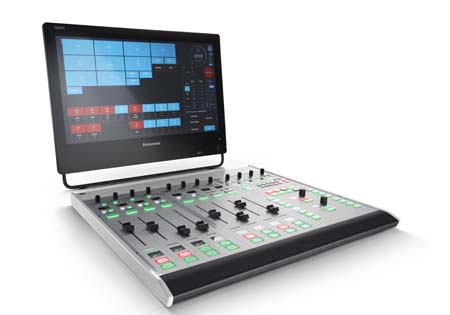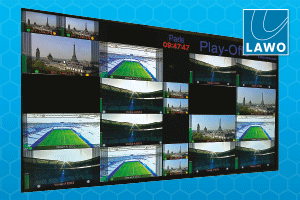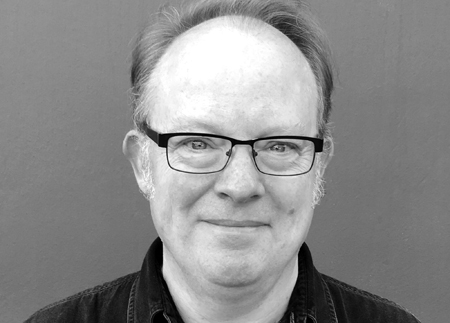Lawo presents ruby, a new mixing console for radio broadcasters, at the 2017 NAB convention in Las Vegas.
 Lawo presents ruby, a new mixing console for radio broadcasters, at the 2017 NAB convention in Las Vegas.
Lawo presents ruby, a new mixing console for radio broadcasters, at the 2017 NAB convention in Las Vegas.
In the modern radio studio, talent is glued to their computer screens, says Stephan Türkay, Lawo Senior Product Manager, Radio OnAir.
And for good reason off-the-shelf PCs have become so powerful that stations are using them to do almost everything in the radio studio. This is an example of how advancements in IT are revolutionizing radio.
More recently, touchscreen smartphones and tablets have become an essential part of daily life. We at Lawo saw touchscreens as another opportunity to revolutionize radio. And thats why we call ruby the visual radio console.
Ruby is matched to the modern radio studio, enabling operators to mix and route audio using the same multi-touch onscreen environment used by other studio tools. The result is a more natural and efficient way of working, with the additional huge benefit of reducing studio monitor clutter. The ruby surface blends physical faders and switches with multi-touch controls; these soft controls can exist alongside other studio applications such as playout systems, phone queues and codecs enabling operators to adjust settings quickly and easily without diverting their focus.
With ruby, operators can work the way they like: with touchscreen displays or physical controls. The choice is completely up to them, says Türkay.
We provide a wide range of preconfigured screens, or clients can craft their own custom screens with our sophisticated GUI builder.
According to Türkay, ruby is a true AES67 radio console.
AES67 is a big deal at Lawo. Not only were we heavily involved with the development and ratification of the standard, every Lawo AoIP product has been 100% AES67-compliant from day one.
In keeping with this constant AoIP innovation, ruby introduces full dual-network redundancy, with instantaneous recovery from any network fault. Both AES67 and high-density MADI interfaces are standard. Eight expansion slots permit addition of mic, line, AES3 and studio I/O, making ruby the perfect console for stations who want to migrate to AoIP without sacrificing legacy infrastructure.
Ruby is available in configurations from 4 to 60 faders, with a variety of desktop or flush-mount frame styles.













































































